35 F. high in the Twin Cities Thursday.
31 F. average high on December 3.
23 F. high on December 3, 2014.
2" snow on the ground at MSP International Airport.
December 4, 1886: Minneapolis hits a record-setting 15 degrees below zero.
Winter Hits the Pause ButtonMild Into Next Week
My
jingle bells are thawing nicely, tufts of green lawn showing through
dwindling piles of slush. I may go for a boat ride. Just to say I went
boating, in Minnesota, in early December.
You may be relieved by
this early-winter reprieve from wind chill, but I find it all a bit
disconcerting. The lack of (real) cold fronts leaves me a little uneasy.
And
for winter weather fans the glass is half-empty: neighborhood hockey
rinks without ice, feeble snow cover for cross country skiing and
snowmobiling. Thousands of Minnesota companies depend on a reliable
supply of snow & cold to make a living.
What's happening? Why
is winter missing in action? El Nino, coupled with the warmest year on
record, worldwide - 14 of the 15 warmest years on since 2000. You might
even call it a trend.
Unusual warmth spills over into next week; a
streak of 40s; ECMWF (European) guidance hinting at 50F by the end of
next week, before a storm (rain event) pulls colder air back into
Minnesota by mid-month.
Live long enough and you'll see everything, even a year without a (real) winter. Santa isn't amused.
Predicted Temperature Anomalies Next Thursday.
Even with patchy clouds and fog (sparked by melting snow and mild air
passing over cold ground) we will still see 40s into next week;
temperatures forecast to be as much as 20F warmer than average over
central and northern Minnesota. Near Hudson Bay Canada a eye-popping 36F
temperature anomaly. El Nino is alive and well.
Global Warmth.
The predicted temperature anomaly map above is valid 09Z next Thursday,
showing warmer than average temperatures (1979-2000 baseline) across
most of the planet; a few pockets of colder air, but temperatures much
above average across North America and much of Asia. Source:
Climate Reanalyzer.
El Nino Drives November Air Temperatures to New Highs. Here's the intro to an explanation at
Reporting Climate Science: "
Global
air temperatures set a new record in November due to the ongoing El
Niño Pacific Ocean warming event, according to data released by the
University of Huntsville in Alabama (UAH). Satellite data shows that the
temperature anomaly - the variance to the long-term average - for the
global lower troposphere in November was +0.33oC. This makes
November 2015 the warmest November reported since satellite measurements
of atmospheric temperature began in 1979, according to UAH. "The
tropical Pacific Ocean is still very warm, with much above normal
quantities of heat that likely will be transferred to the atmosphere in
the coming months,” climate scientist John Christy of UAH is reported as
saying in a UAH news release (below)..."
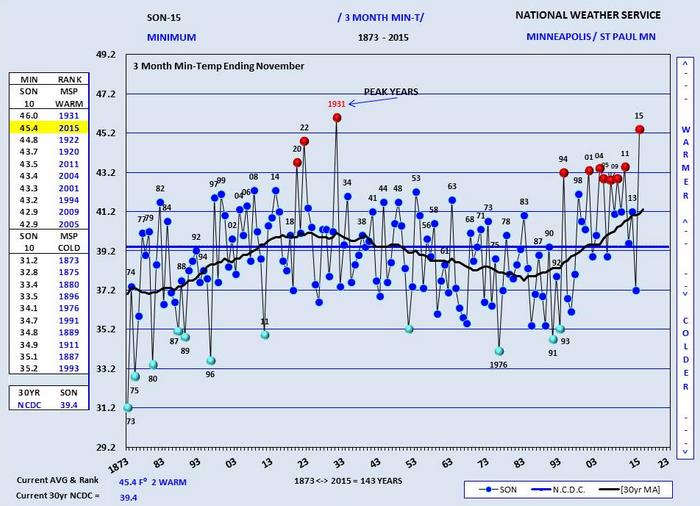 Official: Second Warmest Nighttime Lows During Autumn Since 1873
Official: Second Warmest Nighttime Lows During Autumn Since 1873.
Here's a graph published by the Twin Cities office of the National
Weather Service. 2015 was second only to 1991 for the warmest nighttime
minimum temperatures.
Trending Well Above Average.
The Twin Cities office of the National Weather Service provides some
good perspective on just how unusually mild our daytime highs and
nighttime lows will be into next week.
Stating the Obvious.
Even if we do cool down the latter half of December (which seems
likely) our abnormally mild start to the month means the entire month
will be warmer than average from the Upper Midwest and Great Lakes into
New England; a 70% chance of warmer than average for December.
"No-cember" More
early November than early December through the end of next week,
followed by a correction. The actual observed daytime highs will depend
on low stratus and fog. Once you get socked in this time of year it's
hard for the sun to burn away the crud, keeping temperatures cooler than
they would be otherwise. But even assuming gray (probably inversion)
highs should top 40F nearly ever day from today into Friday of next
week. The chance of rain increases next Thursday.
Serious Snow Shortage.
At least looking out 10 days, based on NOAA's GFS model, which shows a
few dabs of snow for northern New England, a better chance of plowable
amounts from California's Sierra Nevade to Boise and Yellowstone, but
most of the lower 48 will experience a lack of flakes until further
notice. Source: NOAA and AerisWeather.
Colder Front Mid-December, Then Warming Again.
What is impressive, at least to me, is the sheer persistence of the
zonal flow across North America, a few feebles cold fronts, but the
pattern bounces back with a mild west-to-east steering wind aloft. 500
mb winds (GFS) valid Thursday evening, December 17, show a resumption of
winds blowing from Vancouver and Seattle after a few seasonably chilly
days mid month. Blame (or thank) El Nino. Source: GrADS:COLA/IGES.
For NYC Weather, It Was a November to Remember.
Record to near-record warmth continues across much of the USA, with
every indication December will continue the trend of abnormally mild
months. Here's an excerpt at
The Wall Street Journal: "...
To
the chagrin of skiers but the delight of sun-seeking New Yorkers,
November was shaping up to be the warmest on record, according to the
National Weather Service. The average monthly temperature through Sunday
was 53.1 degrees in Central Park. The previous record was 52.7 degrees,
in 2001. The warmest day of the month was Nov. 6, when temperatures in
the park reached 74 degrees, and the coolest temperature reached was 32
degrees, on Nov. 24. September and October were also unseasonably warm:
September was 6.5 degrees above normal, and October 1.1 degree..." (Graphic: NOAA and The Wall Street Journal).
Beijing's Smog: When a Scale of Zero to 500 Doesn't Go High Enough. I don't think any of us can fathom the level of pollution in China's largest cities; here's an excerpt from
The Los Angeles Times: "...
Meanwhile,
Beijing got worse. By Monday, the Air Quality Index, a widely
recognized measure of air pollution, hit 587 on the usual scale of zero
to 500, registering as “beyond index” on monitors throughout the city.
(The United Nations' recommended maximum level is 25.) The government
issued an “orange weather alert,” temporarily suspending some factories
and ordering schools to keep children indoors. The problem’s scope is
difficult to fathom. This week’s smog spread across a land mass of
204,634 square miles, according to the Ministry of Environmental
Protection — about 25% larger than the state of California..."
Image credit above: "
A
woman uses a cloth to cover her face from pollutants as she walks past a
construction building on a heavily polluted day in Beijing, Monday,
Nov. 30, 2015. Beijing on Sunday, Nov. 29 issued its highest smog alert
of the year following air pollution in capital city reached hazardous
levels as smog engulfed large parts of the country despite efforts to
clean up the foul air." (AP Photo/Andy Wong)
Indian Army on War Footing to Rescue Survivors as Flood Toll Nears 270. Record flooding is gripping portions of India - here's an excerpt at
Reuters: "
The
Indian military evacuated more than 2,000 residents stranded in the
southern state of Tamil Nadu on Thursday as the death toll from flooding
rose to 269 after the heaviest cloudburst in over a century. Forecasts
of more rain over the next 48 hours forced the army to work on a war
footing to rescue survivors trapped in inundated parts of Chennai.
India's fourth most populous city saw only slight rains on Thursday, but
water levels had not receded since a day earlier, when a massive
release of water from a brimming reservoir swamped low-lying areas of
the city..."
Image credit above: "
An aerial view of
the flooded cemetery in Chennai, India, Thursday, Dec. 3, 2015. The
heaviest rainfall in more than 100 years has devastated swathes of the
southern Indian state of Tamil Nadu, with thousands forced to leave
their submerged homes and schools, offices and a regional airport shut
for a second day Thursday." ( Atul Yadav/ Press Trust of India via AP).
Urban Heat Island Impacting Final Snowfall Totals?
Consulting meteorologist Dean DeHarpporte has an interesting
perspective on Monday's fickle slush-fest I wanted to share on today's
weather blog:
"Most of us in the metro area think the forecast for 4-7 inches of snow for Monday and Tuesday
was a bust, The MSP airport offically recorded 3.9 in., but the rain
and long period of 33 degree temperatures compacted it quickly after it
fell, which made it seem like we got only 1-2 inches. Measurements show
that a layer of snow 4-7 inches deep of snow did, indeed, fall within
50 miles of the Twin Cities in every direction, leaving us in a snow
deficit donut hole.
Why did the snow deficit occur here in the metroi? Forecasters love to place blame for a busted forecast on something other than themselves. Can
we blame the urban heat island, which is normally considered a
summertime effect caused by the black pavement of the cities that
absorbs and holds more heat than the green surrounding countryside? But
this is December, not July. Could it be that the metro area's dense city
traffic and heat escaping from the houses and buildings during the
snowfall was enough to nudge the temperature just high enough to cause
enough rain rather than snow and enough compacting of what snow did fall
to create the Twin Cities donut hole? I
have never read in the meteorological literature of such a winter heat
island effect reducing snowfall amounts. Maybe it was just a coincidence."
December is Going to be Toasty; Really Toasty. Thank you El Nino, superimposed on the larger, slow-motion warming trend we're witnessing worldwide. Here's an excerpt at
WXshift: "
Forget
a white fir or Norway spruce for your Christmas tree. A palm tree might
be a more apt as warm weather is forecast for a large part of the U.S.
to start December. Every state will see increased odds for
warmer-than-normal temperatures over the first two weeks of December,
according to the National Weather Service. And yes, Canada will be
getting in on the action, too, according to Environment Canada. In the
Northeast and Upper Midwest, there’s an 80 percent chance conditions
will be warmer than normal during the second week of December..."
Oil Glut: How to Tell When It's Really Time to Worry. Supplies of fossil fuels continue to rise while demand drops over time, due to a myriad of factors. Here's an excerpt at
The Wall Street Journal: "...
There
is now so much crude oil being pumped world-wide amid such tepid demand
that producers are fretting over the possibility of a further sharp
downward move in prices. The 93 million barrel question is how much more
space there is to put it all and whether storage will be exhausted
before the market is balanced. Were that to happen, it could cause the
oil-price rout to grow even uglier. For now, that prospect looks to
still be a ways off even if the Organization of the Petroleum Exporting
Countries, which meets this week, fails to curb output. Yes, inventories
are at unheard of levels..."
Photo credit above: "
Oil tankers during loading operations at the Aspropyrgos refinery in Athens last June.". Photo: Simon Dawson/Bloomberg News.
Bill Gates Deserves Praise for his Green Energy Revolution. Here's a clip of an Op-Ed from the Seattle Times Editorial Board: "Bill Gates is positioned to remake the energy landscape, corralling 28 billionaire investors to advance clean-energy research. In his announcement,
Gates distilled the wonky jargon of the Paris climate conference into
something tangible: money for new clean-energy technology. Gates’
project has teeth. And once the diplomatic chatter at the conference
begins to quiet, it may end up as the last, best hope to address the
existential threat of climate change. Simply put, Gates is relying on
the genius of human innovation to head off planetary climate change..."
Photo credit above: "
Bill
Gates delivers a speech at the ‘Mission Innovation: Accelerating the
Clean Energy Revolution’ meeting at the COP21 World Climate Change
Conference 2015 in Le Bourget, north of Paris, France, on Monday." (IAN LANGSDON/POOL/EPA).
What Bill Gates Shares with the Skeptical Environmentalist. Bloomberg Business reports - here's a clip: "When
Microsoft Billionaire Bill Gates pledged to plow $1 billion of his own
money into clean energy research and development, he followed a
narrative long-advocated by Bjorn Lomborg, an economist known for
writing “The Skeptical Environmentalist.” For both of them, R&D is
the key to fighting climate change. Lomborg, who doubts the value of the
measures being taken to fight global warming rather than the science
behind it, has argued since at least 2008 that it’d be better to invest
in developing new technologies than subsidizing renewables. The pay-off
would come two to four decades from now, he said in an interview in
Paris..."
These Could Be The First U.S. States to Tax Carbon - And Give Their Residents a Nice Paycheck.
A revenue-neutral carbon tax, returning money to consumers? It's
already happening in British Columbia, and both Washington State and
Massachusetts are about to do what Congress has been unable and
unwilling to attempt. Here's an excerpt at The Washington Post: "In
Washington state, a circulating petition might be the key to both
permanently cutting down on the state’s carbon footprint and
also reforming what is widely considered one of the nation’s most
regressive tax systems. If enough signatures are secured, the petition
will allow the United States’ first-ever carbon tax a spot on the ballot..."
Photo credit above: "Steam billows from the coal-fired Merrimack Station in Bow, N.H."(AP Photo/Jim Cole).
Elon Musk Says Robust Carbon Tax Would Speed Global Clean Energy Transition. Here's more detail from an article at The Guardian: "Elon Musk,
the renowned innovator, believes the widespread introduction of a
carbon price could halve the time it takes the world to transition to
clean energy and make a huge difference to the impact of climate change.
Addressing students at the Sorbonne University on the sidelines of the
Paris climate summit, the electric car, Powerwall battery and space
tycoon said the obvious solution to runaway global warming was to remove
the effective subsidy of not pricing the damage done by carbon
pollution, urging the students to campaign and lobby governments to
implement the policy..."
Photo credit above: "
Tesla
Motors chief executive Elon Musk calls for nations to adopt a carbon
tax at the Paris Pantheon Sorbonne University on the sidelines of the
COP21, United Nations climate change conference, in Paris on Wednesday." Photograph: Francois Mori/AP.
Goldman Sachs: Investors Should Be Focused on 4 Technologies for Maximum Climate Impact. Again, follow the (smart) money. Here's an excerpt at Greentech Media: "...In a report issued this week,
Goldman concluded that the most effective mid-term solution for
lowering carbon emissions -- and making money -- is backing existing
technologies that are ready to scale. In fact, analysts at the bank
believe that the majority of investor dollars should go to only four
technologies: solar photovoltaics, onshore wind, LED lighting and
electric cars. "We believe investors should focus on this set of
front-runners with the potential to shift emission trajectories and
reshape competitive dynamics on a five- to 10-year view," wrote the
group of analysts..." (Photo credit: Fresh Energy).
Smartphones, Internet Eating Into TV Time. You could see this coming.
TVNewsCheck has the story; here's the intro: "
The
use of Internet-ready devices like smartphones appears to have
seriously cut into the time Americans spend watching traditional TV, new
Nielsen data show, potentially undercutting the notion that mobile
devices merely serve as "second screens" while people are plopped in
front of the set. Data provided to The Associated Press show an increase
in the number of 18-to-34-year-olds who used a smartphone, tablet or
TV-connected device like a streaming box or game console. That grew 26
percent in May compared with a year earlier, to an average of 8.5
million people per minute..." (Image: LinkedIn).
12 Things You Should Never Say to a Meteorologist. Oh, there's more than 12, trust me.
Retale.com has the short list; here's an excerpt: "...
While
a science, weather forecasting can never hit the mark 100% of the time
when it comes to extended forecasts. Meteorologists get the temperature
correct within two degrees 80 percent of the time, and within four
degrees 90 percent of the time. They’re very good with a general
forecast and pretty good up to three days out. Six to seven days out?
That’s a crapshoot..."
Can Christmas Lights Really Slow Your Wi-Fi? NBC News has the unlikely story: "Expecting
a new iPad Pro under the tree? Before you start streaming holiday
classics on Netflix, you should know that your Christmas lights could be
slowing down your Wi-Fi signal. On Tuesday, British telecom regulator
Ofcom released a Wi-Fi checker app (available for Android and iOS) for judging the speed of their connection. It also noted a few things that can slow wireless Internet, including TV monitors, stereo speakers, and Christmas lights..."
The Brand Name You'll Never Forget.
Reminds me of the Chevy "Nova". Nova, in Spanish, means "won't go",
which may not leave the best impression in a motor vehicle. Here's an
excerpt from the
BBC: "...
Then
again you might prefer a bag of the Chinese snack Only Pukeet washed
down with a bottle of Pee Cola from Ghana? And don't forget a pack of
the Swedish toilet paper, Krapp, and a box of Barf detergent from Iran.
You could always store it in a Bol-lock zippable plastic bag..."
Object of Intrigue: London's Life-Saving, Publicly-Accessible Enema Kits. Thank God you don't live in 18th century London, for many good reasons. Here's one, courtesy of
Atlas Obscura: "
If
you were unfortunate enough to drown in London during the mid- to late
18th century, further indignities likely awaited you. A member of the
public may have attempted to revive you by furiously pumping tobacco
smoke into your rectum. The tobacco smoke enema was one of the
resuscitation techniques recommended by London’s Society for the
Recovery of Persons Apparently Drowned, an organization formed in 1774
with the aim of developing and administering lifesaving first-aid to
those on death’s door..."
Image credit: "
A resuscitation kit from the early 19th century." (Photo: Wellcome Images).
TODAY: Partly sunny, milder. Winds: S 8-13. High: 41
FRIDAY NIGHT: Partly cloudy. Low: 35
SATURDAY: Clouds increase, feels like early November. Winds: S 10-15. High: 44
SUNDAY: Blue sky, consider mowing the lawn. Winds: W 5-10. Wake-up: 30. High: 41
MONDAY: Mix of clouds and sun, still quiet. Wake-up: 29. High: 43
TUESDAY: Intervals of sun, no sign of winter. Wake-up: 30. High: 45
WEDNESDAY: Patchy clouds and fog. Wake-up: 32. High: 43
THURSDAY: Mild, growing chance of rain. Wake-up: 33. High: 45
Climate Stories...
Fact, Not Opinion: Climate Change is Happening and is Caused by Human Activities. NCAR Climate scientist Kevin Trenberth has the story at
Huffington Post; here's his introduction: "
If
planet Earth went to see a doctor because of its persistent and growing
fever, the results would likely be: (i) the symptoms are clear: the
planet's temperature and atmospheric carbon dioxide are increasing; (ii)
the diagnosis would be that these two things are linked and human
activities are causal; (iii) the prognosis would be an outlook for more
warming at rates that can be disruptive and will cause strife; and (iv)
the treatment is "mitigation" which means reducing fossil fuel use to
lower carbon dioxide emissions, and "adaptation" which means planning
for the consequences. Patrick Daniel Moynihan once famously said
"You are entitled to your own opinion but not your own facts." In
reality we have many facts and physical understanding with regard to the
changing climate. The interpretation of the available information
relies on well-established physical principles. The data are of mixed
quality and length but together they tell a compelling story leaving no
doubt whatsoever about the human role in climate change..."
Graphic credit above: "
Time
series of annual values of global mean temperature anomalies (red and
blue bars) in degrees Celsius, and carbon dioxide concentrations at
Mauna Loa, both from NOAA, relative to a baseline of the 20th Century
values. Also given as dashed values are the pre-industrial estimated
values, with the scale in orange at right for carbon dioxide, where the
value is 280 ppmv (parts per million by volume). The latest October 2015
values exceed 400 ppmv. For temperature, the 2015 value is based on
observations through October 2015 and estimated for November and
December based on the October anomaly. Values are more than 1 C above
pre-industrial levels." (Thanks to John Fasullo who helped with this figure).
Tax Me, Says ExxonMobil, in Declaring Support for Climate Talks. Talk about a shift in strategy. Here's an excerpt from
Bloomberg Business: "
Exxon Mobil Corp., a favorite target of
global warming activists, said Wednesday that it’s hopeful for a deal
out of the climate-change talks in Paris and still thinks the best
solution is a tax on carbon pollution. As the United Nations
negotiations moved into a third day, the world’s biggest oil explorer
said in an blog post
that it supports “meaningful action to address the risks of climate
change” as long as it preserved access to the reliable and affordable
energy..."
More Exxon Documents Show How Much It Knew About Climate 35 Years Ago.
InsideClimate News reports; here's an excerpt: "...
Exxon estimated that CO2 would
double by 2090, which was later than what the other groups had
projected. It estimated that average global temperatures would rise by
1.3 to 3.1 degrees Celsius (2.3 to 5.6 degrees Fahrenheit), which was in
the mid-range of the four projections that Shaw shared. Shaw showed the
policy recommendations of the three organizations and Exxon to address
climate change. According to him, MIT argued for an "extreme reduction
in fossil fuel use," while the others, including Exxon, urged a more
cautious approach. But Exxon did not deny the link between fossil fuel
use and climate change as it would begin to do just five years later." (File image: Don Ryan, AP).
Is Big Oil the New Big Tobacco?
Tobacco times 100, or 1,000, based on the trillions of dollars of
carbon still in the ground, which needs to remain in the ground to avoid
a worst-case climate scenario. Here's an excerpt from a story at
Bloomberg Business: "...
Activists
have been urging investors for years to pull money out of the
fossil-fuel producers blamed for much of the world’s warming. Joe
Camel’s new role shows the movement has an even broader target: not just
the industry’s money, but its reputation. With envoys gathered in Paris
this week for a United Nations summit on climate change, there are
signs -- from coal-plant closures to the death of the Keystone XL pipeline
-- that the effort is bearing fruit. “That pariah status is growing,”
Bill McKibben, a founder of climate advocacy group 350.org, said in an
interview. “The fossil-fuel industry remains incredibly strong -- they
are super-rich -- but they are not so invincible as they thought they
were...”
Researchers: ExxonMobil, Koch Family Have Powered the Climate-Denial Machine for Decades. Where's the outrage?
Slate
has the unsavory details of new research that draws a direct line
between corporate-inspired, (manufactured) misinformation and today's
political quagmire; here's an excerpt: "...
By machine-reading this
massive amount of information—more than 39 million words—Farrell was
able to link a significant amount of the most resonant denialist
rhetoric over the last two decades directly to two entities that have
derived a significant amount of their wealth from exploiting fossil
fuels: ExxonMobil and the Koch family foundations. To conduct this
research, Farrell constructed a comprehensive social network of the
producers of contrarian climate information—some 4,556 individuals and
164 organizations—and tracked the most common phrases
shared among them, like “CO2 is good” or “Al Gore.” He then examined
the funding ties between companies and compared them with the use of
common phrases. After analyzing them all, he found that donations to
organizations from ExxonMobil and the Koch foundations were “the most
reliable and theoretically important across-time indicators of corporate
involvement”—including the ability to influence the mainstream media
and the president..."
David Koch file photo: AP Photo/Phelan M. Ebenhack.
The GOP Is The World's Only Major Climate-Denialist Party. But Why? Vox has a few theories, here's an excerpt: "...
Put
more simply: There are lots of Republicans who take climate change
seriously and want to do something about it, but they have virtually no
representation among elected Republicans at the national level. The
climate-denialist tail is wagging the GOP dog. As David Brooks laments
in his latest column:
[O]n
this issue the G.O.P. has come to resemble a Soviet dictatorship — a
vast majority of Republican politicians can’t publicly say what they
know about the truth of climate change because they’re afraid the
thought police will knock on their door and drag them off to an AM radio
interrogation.
Brooks is a bit delusional
about that "vast majority," but he's not wrong about the thought police.
Deviation on this issue is swiftly punished by a well-funded primary
from the right..."
Ecojustice Files Complaint with Competition Bureau Against Climate Denial Groups. What's happening in Canada will, inevitably, spread to the USA. Lawyers are going to have a field day. Here's an excerpt at
The National Observer: "
Ecojustice,
on behalf of a group of prominent Canadians, filed a complaint Thursday
with the federal Competition Bureau, asking it to investigate false and
misleading representations made by climate change denier groups. In
their application to the Commissioner of Competition, the group called
for “a thorough rigorous inquiry of the denier groups and their climate
science misrepresentations...”
New Pollution Regulations To Cut China's CO2 Emissions by 180 mt/year by 2020.
The Chinese realize they have a monstrous problem, with traditional
(mostly coal-fired) pollution and CO2 emissions. Here's an excerpt at
Carbon Pulse: "
China
has introduced new coal plant efficiency standards in a bid to curb
local air pollution, which will cut CO2 emissions 180 million tons a
year by 2020 as a side effect, state-owned Xinhua news agency reported
Wednesday. The State Council, China's cabinet, introduced the new rules
to help meet a new target of cutting emissions of air pollutants such as
sulphur dioxide and nitrous oxide 60% by the end of the decade. Air
pollution levels in Beijing have spiked this week, blanketing the city
in smog and forcing some international schools to close just as China's
delegation arrived in Paris hoping to play a crucial role in negotiating
a new global climate change treaty..."
Earth Will Cross the Climate Danger Threshold by 2036. Here's an excerpt of a post from climate scientist Michael Mann at
Scientific American: "...
The
IPCC has not yet weighed in on the impacts of the warming or how to
mitigate it, which it will do in reports that were due this March and
April. Yet I have done some calculations that I think can answer those
questions now: If the world keeps burning fossil fuels at the current
rate, it will cross a threshold into environmental ruin by 2036. The
“faux pause” could buy the planet a few extra years beyond that date to
reduce greenhouse gas emissions and avoid the crossover—but only a few..."
Image credit:
Pitch Interactive; SOURCE: MICHAEL E. MANN.
Who Is Afraid of Climate Change? Here's a snippet of an article at
Politico: "...
Pew Research Center survey
that polled more than 45,000 people in 40 countries, a global median of
54 percent think climate change is a very serious problem. In Europe,
an equal proportion agreed, although the British (41 percent) and the
Poles (19 percent) are substantially less concerned. According to our
research, Poles are among the least concerned about global warming.
European concern about climate change is greater than in the U.S., where
45 percent see it as a very serious problem, and in China, where only
18 percent express a similar level of concern. But Europeans are far
from the most worried around the world: 74 percent of Latin Americans
and 61 percent of Africans polled expressed intense concern about global
warming..."
Graphic credit above:
Pew Research Center.
China
has introduced new coal plant efficiency standards in a bid to curb
local air pollution, which will cut CO2 emissions 180 million tonnes a
year by 2020 as a side effect, state-owned Xinhua news agency reported
Wednesday.
The State Council, China’s cabinet, introduced the new
rules to help meet a new target of cutting emissions of air pollutants
such as sulphur dioxide and nitrous oxide 60% by the end of the decade.
Air
pollution levels in Beijing have spiked this week, blanketing the city
in smog and forcing some international schools to close just as China’s
delegation arrived in Paris hoping to play a crucial role in negotiating
a new global climate change treaty.
- See more at: http://carbon-pulse.com/12785/#sthash.YHGlGUuO.HsdrVKQN.dpuf
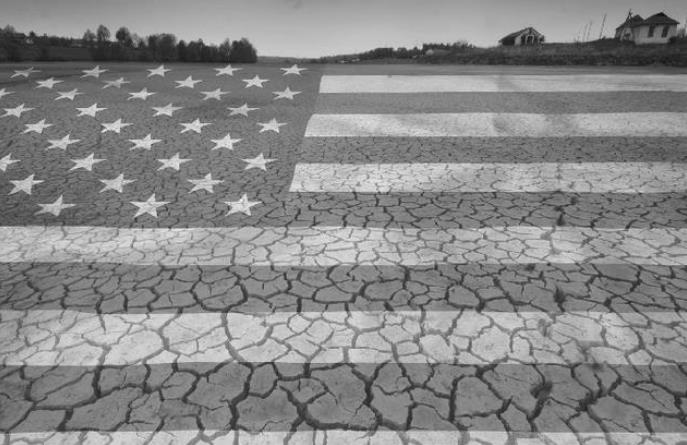 Chuck Hagel: Climate Change is a National Security Problem.
Chuck Hagel: Climate Change is a National Security Problem. It's
a "threat multiplier", magnifying and accelerating problems that might
have popped up organically, but making them worse - faster. Here's an
excerpt at
TIME: "...
This
is why, along with a bipartisan group of other former Secretaries of
Defense and State and national security leaders, I recently signed a statement urging global cooperation on climate change.
The statement said we must work to address these threats as a national
security imperative. The military has defined climate change as a global
threat multiplier that could exacerbate instigators of conflict such as
resource disputes, ethnic tensions and economic discontent. Preparing
for climate change is about risk—even if we do not understand every
aspect of the scientific predictions, we know that the consequences of
not acting may be significant..."
The Marshall Islands are Disappearing.
The New York Times reports on rising sea levels and the implications for the world's island nations; here's a clip: "...
In
the global fight over climate change, leaders of vulnerable low-lying
island nations have long sought to draw attention to their plight. They
have staged symbolic events like an underwater cabinet meeting, gone on
hunger strikes and delivered anguished speeches to the United Nations.
Those efforts have had little impact on the substance of the energy and
economic policies that dictate governmental response to climate change.
In the meantime, Mr. Anej and millions like him cope with the fallout
while stranded on disappearing shores. “I’m the oldest — I can’t leave
my parents,” he said. “But I don’t want my kids to drown here...”
What Can a Technologist Do About Climate Change (A Personal View). Bret Victor at
worrydream.com
has a long, dense and excellent overview of the technical challenge.
It's an engineering problem like none other we've ever faced; here's an
excerpt that caught my eye: "..
.In order to stop dumping carbon
dioxide into the sky, the world will have to generate its energy
“cleanly”. For the purposes of this essay, that will mean mostly via
solar and wind, although geothermal, hydroelectric, biomass, and nuclear
will all have parts to play. This is well-known, but the scale and rate
of change required is often unappreciated. Saul Griffith has a good bit about this, suggesting that what’s needed is not throwing up a few solar panels, but a major industrial shift comparable to retooling for World War II. In 1940 through 1942, U.S. war-related industrial production tripled each year. That’s over twice as fast as Moore’s law..."
Global Warming Can Lead to Economic Development.
Strengthening infrastructure, making everything we do more resilient,
will ultimately be good for the economy. Here's an excerpt at
TheHill: "..
.Global
warming is and will continue to cause more volatile weather. Rain and
snowstorms will be more intense and droughts more severe. We already
have evidence of this, especially in California. An infrastructure bill
can provide for reservoirs, which store water from severe storms for use
during droughts. These same reservoirs can provide wildlife habitat and
recreational opportunity for boating. Similarly an infrastructure bill
can provide for levees and wetlands along rivers, which protect from
overflows during heavy rains, supply areas to recharge groundwater
aquifers and make available habitat and recreational opportunities.
Smart water meters and smart water delivery systems are examples of
technological innovations being implemented in a few cities, San
Francisco being the best example..."
What You Can Do About Climate Change. Here's an excerpt of some good advice at
The New York Times: "...
But
as bad as flying can be, driving can be even worse. A cross-country
road trip creates more carbon emissions than a plane seat. And while a
hybrid or electric car will save on gas mileage, most electricity in the
United States still comes from fossil fuels.
If you really want to mind your carbon emissions, taking a train or a
bus is best, especially for shorter trips. Or try that Internet thing: A
Skype call or Google Hangout produces very little carbon dioxide..."
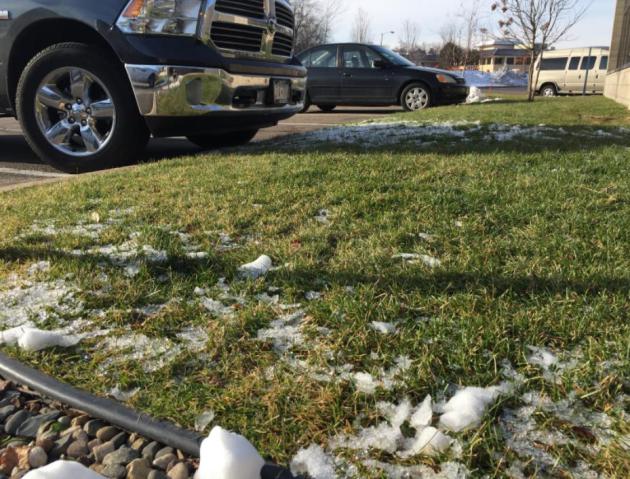
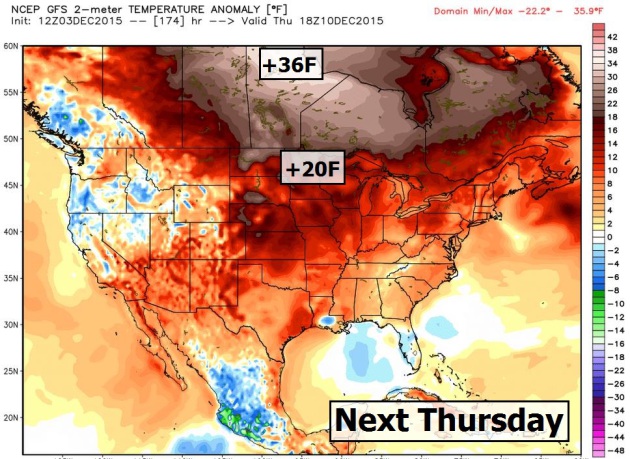
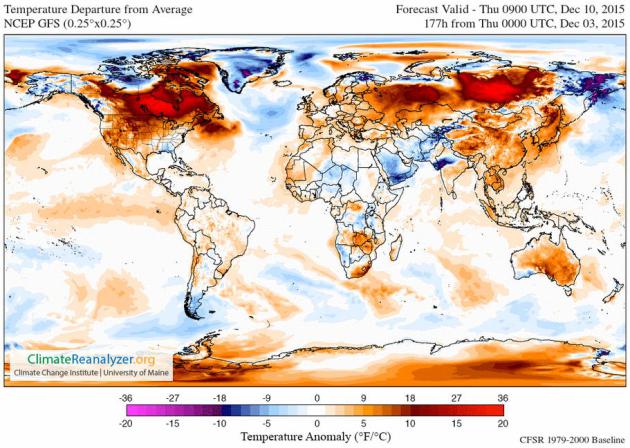
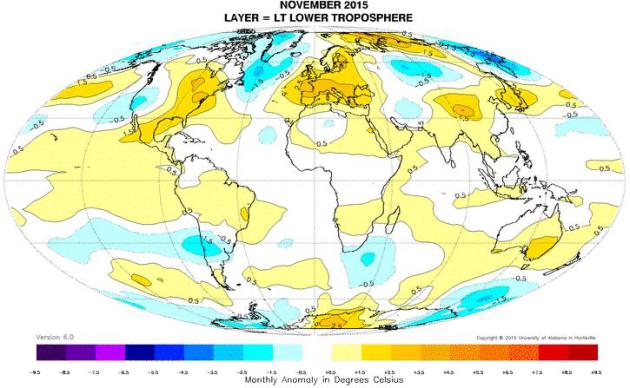

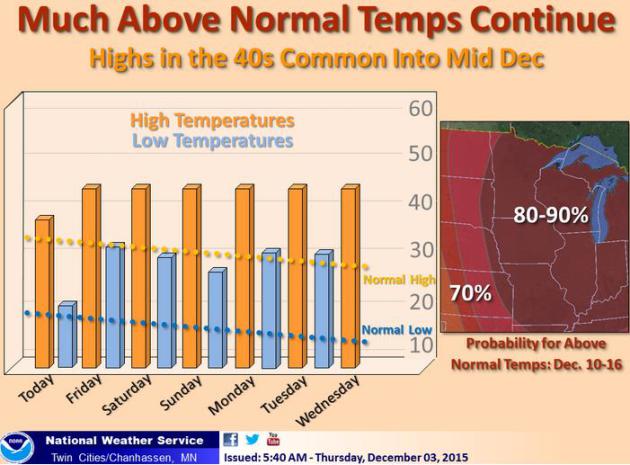
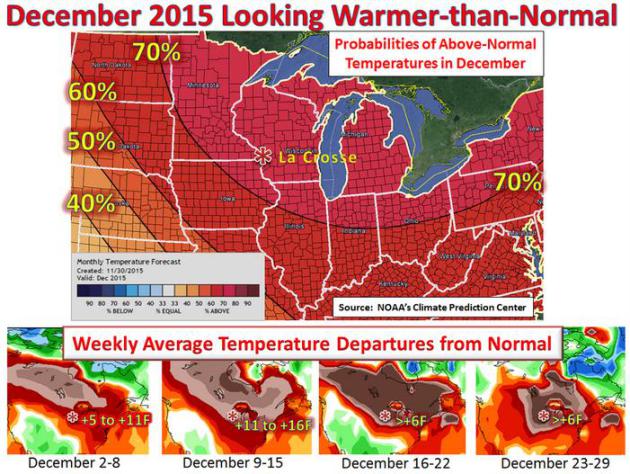
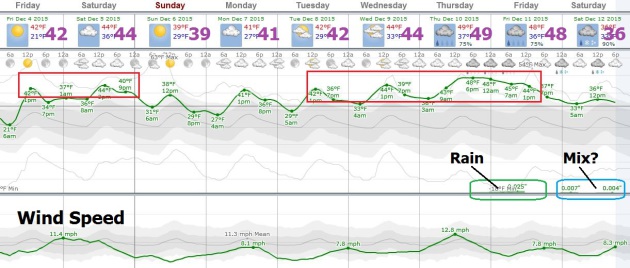
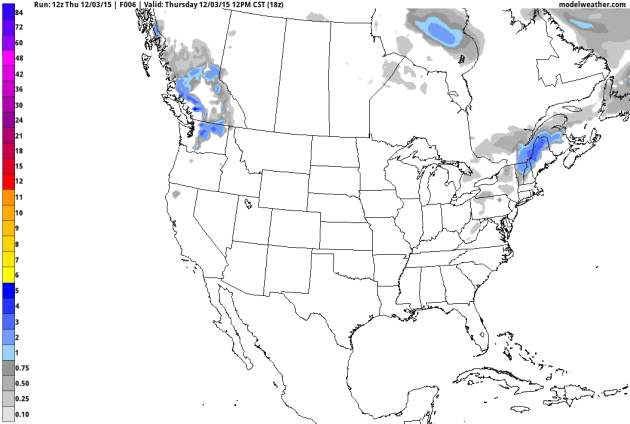
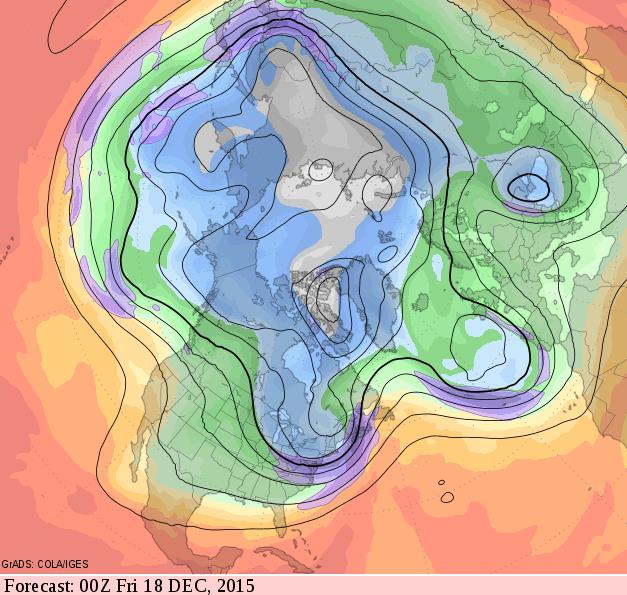
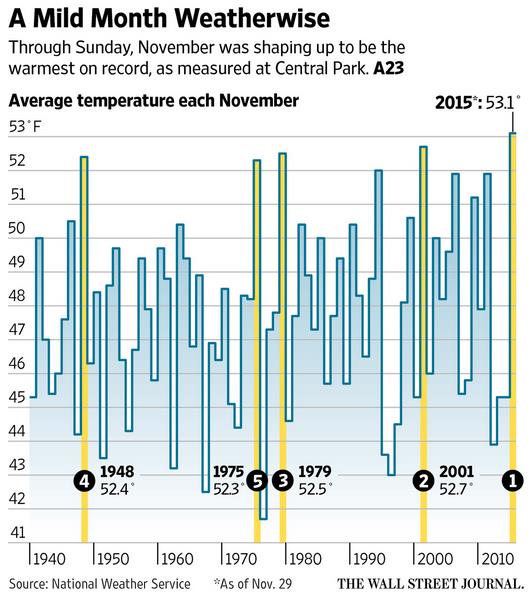
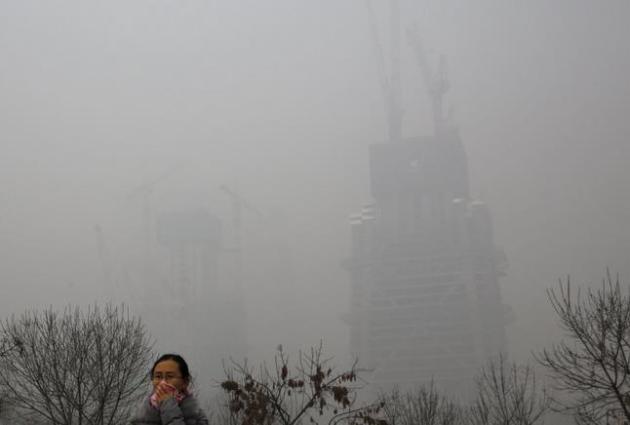
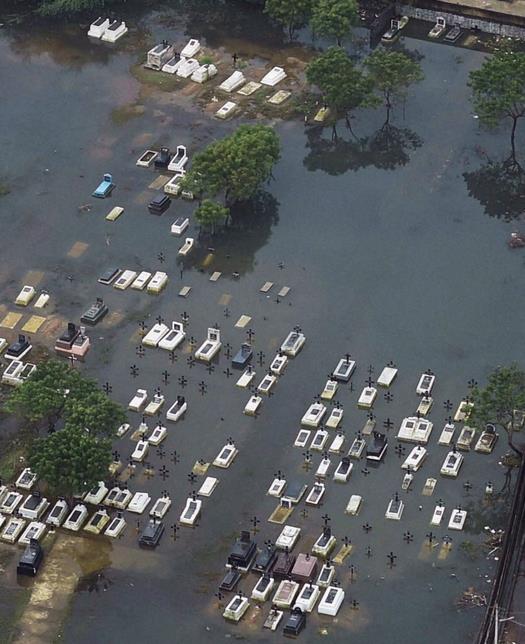
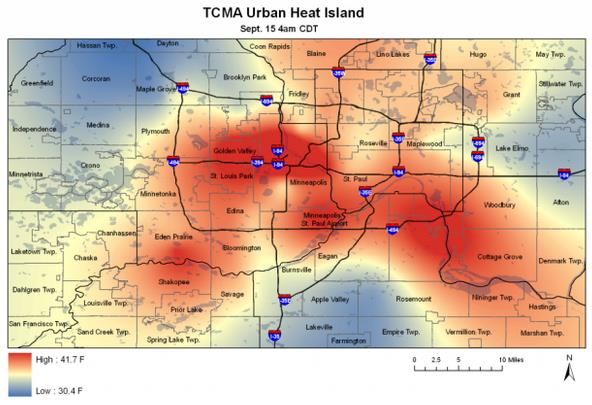
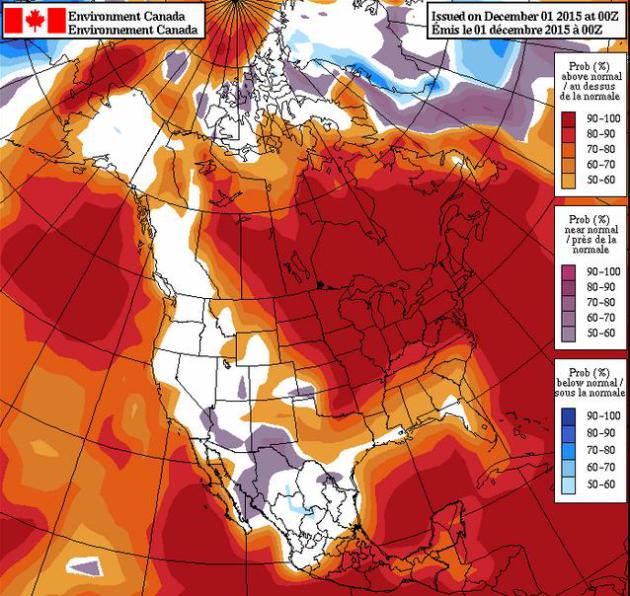
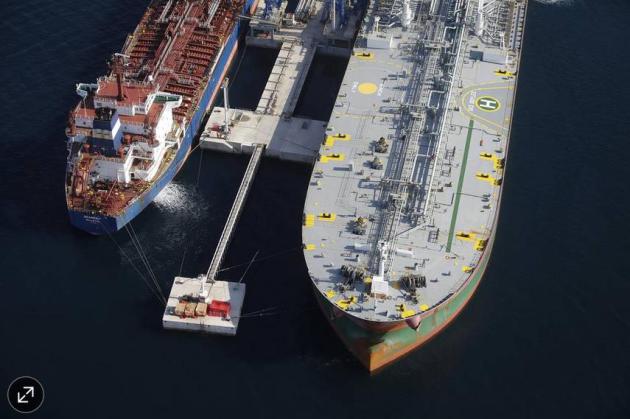
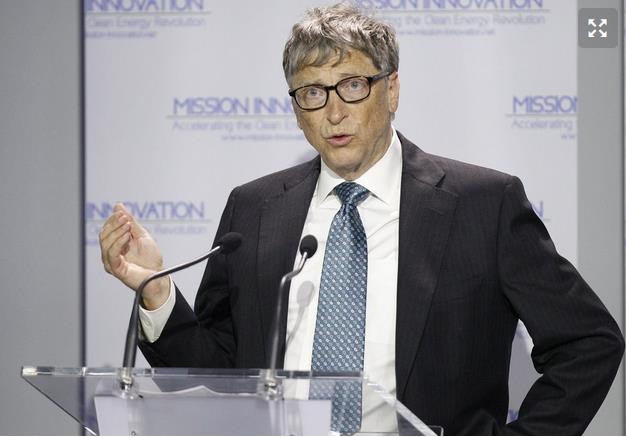
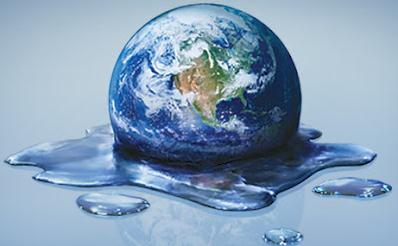
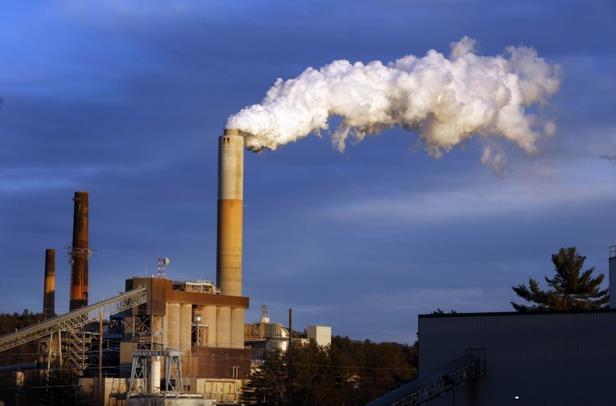
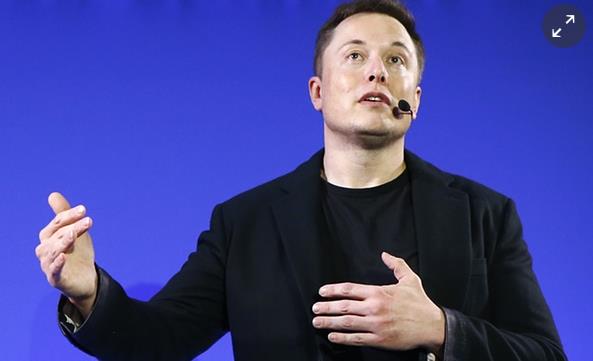




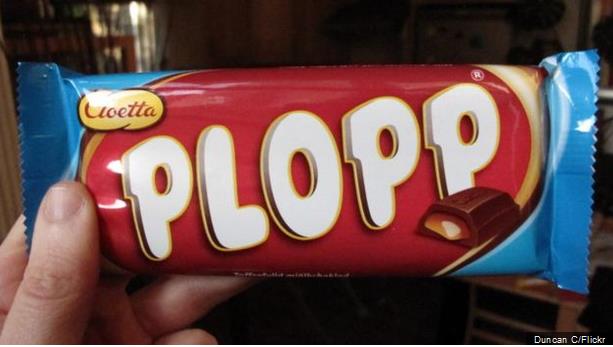


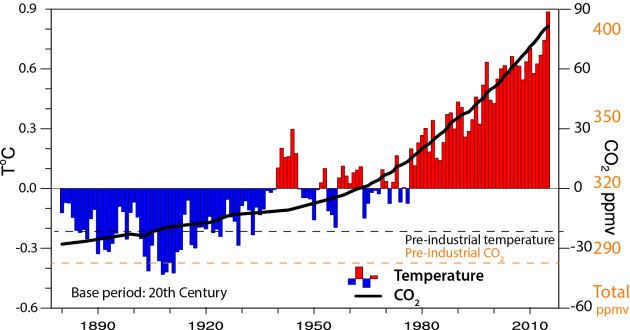

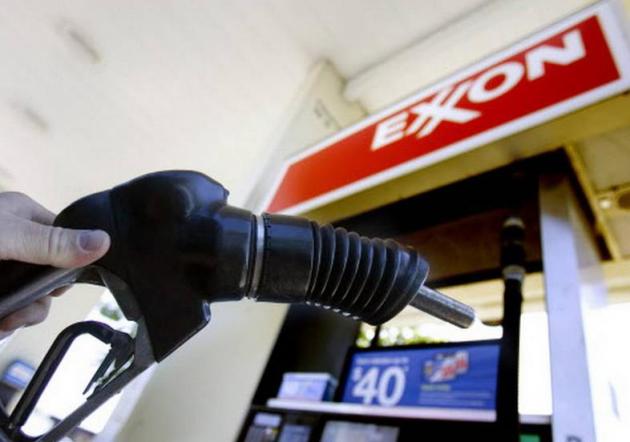
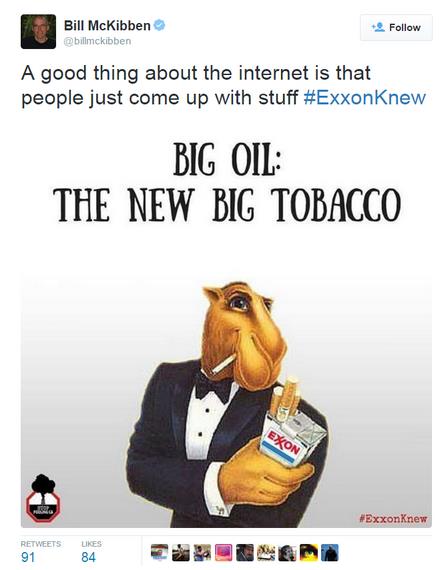
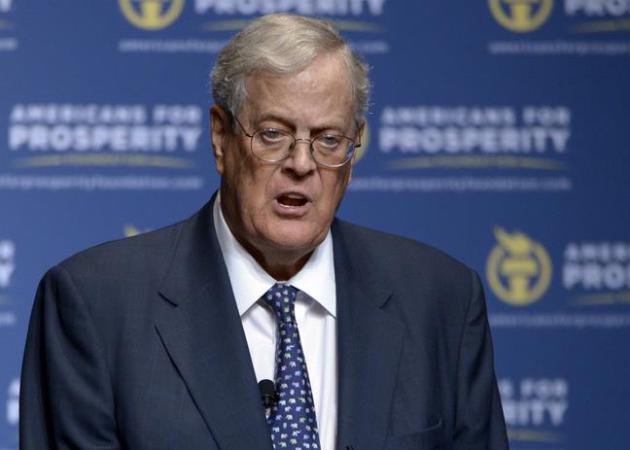
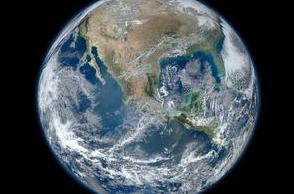
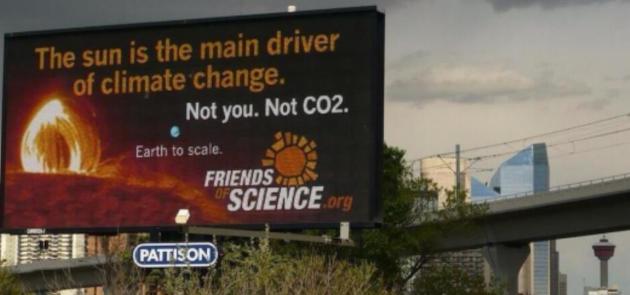
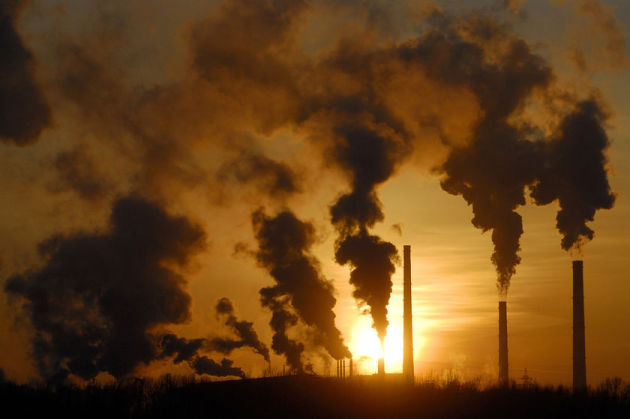
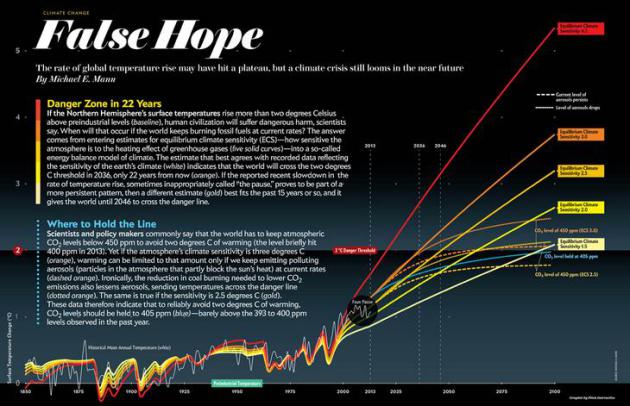
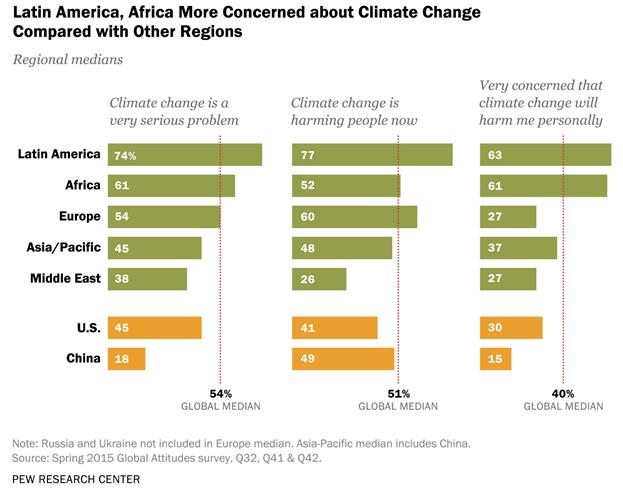


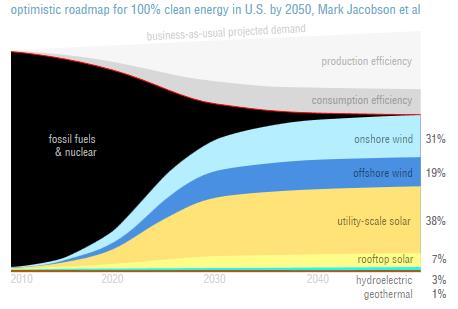
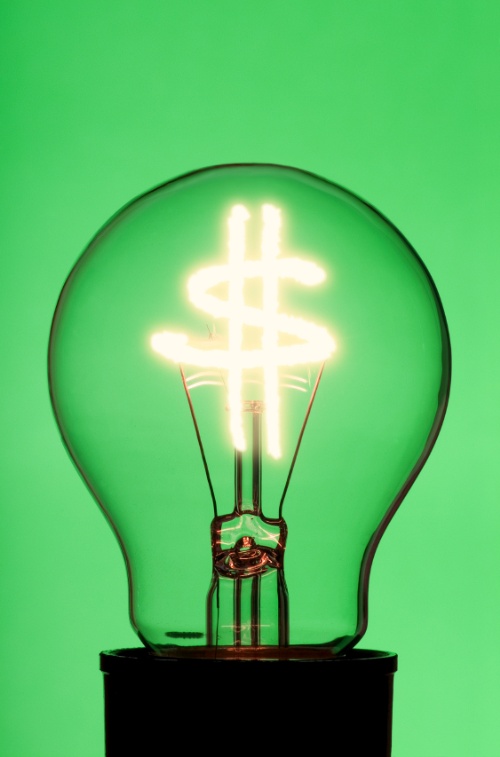
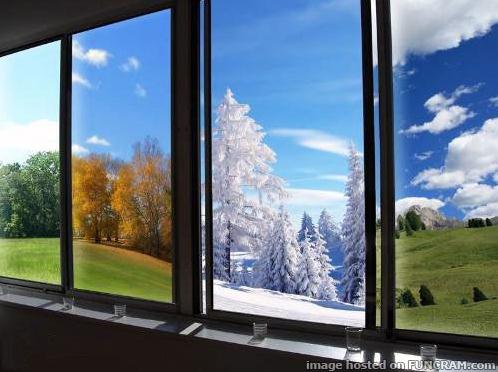
No comments:
Post a Comment